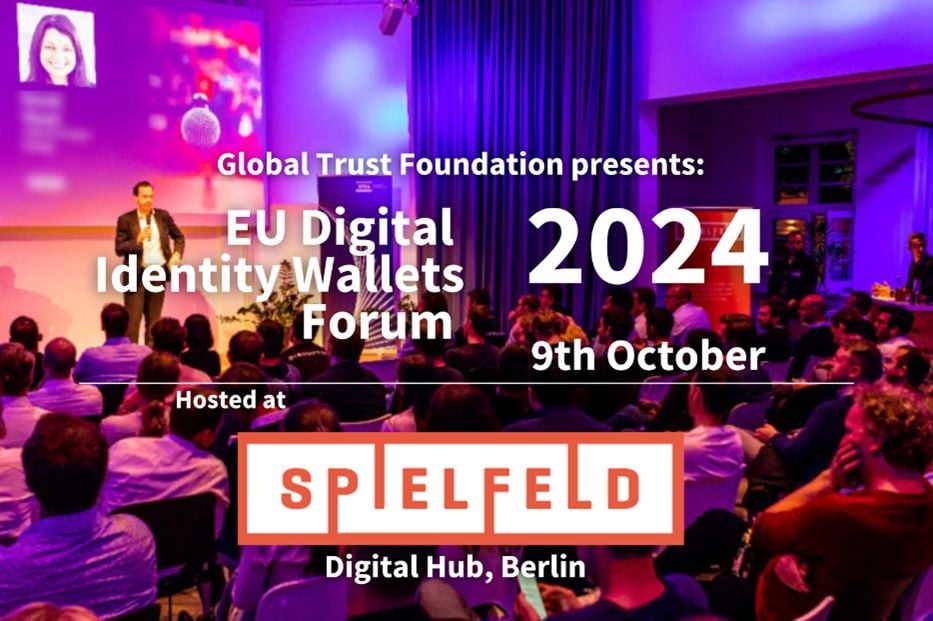The Digital Identity Wallets as a key to a secure online future
A 2-minute guide for all EU citizens
Petar Chardakov, Director and Projects Manager of the Global Trust Foundation:

The Global Trust Foundation is a European-based non-profit organisation dedicated to innovation. Its team and advisory board consist of leading experts in all aspects of technology.
With a commitment to research, collaboration, and implementation, the organisation leverages cutting-edge technology to address global challenges, promote responsible practices, and empower communities through education and access to resources. It is currently working in Europe and the Middle East on identity and security-related projects.
The organisation is the only partner representing Bulgaria in the EU Digital Identity Wallet Large Scale Pilots development and implementations within the European Wallet Consortium (EWC). Recently the Global Trust Foundation held a bespoke workshop on the impact of eIDAS 2.0 and the advancements in European Digital Identity on the industry.

On the 9th of October, the Global Trust Foundation will be holding the highly anticipated "EU Digital Identity Wallets Forum" specifically for technical wallet experts and decision-makers in Spielfeld Digital Hub, Berlin further progressing the evolution of the Digital Identity Wallet Eco-system.
Today we are talking with Petar Chardakov, Director and Projects Manager of the Global Trust Foundation to discuss the latest activities in digital identity wallets.
Mr. Chardakov, digital wallets are becoming very popular and we can see them being implemented throughout the world. Could you explain what are digital identity wallets?
It will be my pleasure. There is a real difference between digital identity wallets and digital wallets that we already know from the likes of Apple and Google. Identity wallets open up interactions between people, companies and governments way beyond the limited capabilities that we have at the moment. You can use them for official documents such as your passport, driving license, diplomas, resident permits etc. as well as payment cards. You will be able to use them to get government and local services such as access to civic records and demonstrate ability to work, all without anyone tracking your actions. You can add access, certification and parking permits, tickets, medical records and others, all under your control and together conveniently available on your own phone. They have the potential to make your day-to-day life easier in an increasingly digital world. Also, I have to make it clear that identity wallets will not serve as a replacement for paper documents. They are here to ease all processes that require documents and minimise bureaucracy to a minimum.
Would that mean our waiting in the queue for all sorts of documents will be eradicated? Why do we need digital identity wallets and what can I use them for?
That’s exactly what it means and it is a matter of months. With the adoption of eIDAS 2.0, every country in the European Union will have a digital identity wallet.
We want to do more and more activities online. Therefore, life can get more complicated and the people that we work with are also using digital services. It's important to interact in a safe and secure way. Let’s imagine the following situations. “How do I know that the taxi driver, that I’m using is the person with the pointed-out driving license and my trip is safe?”; ” How do I know that my medical record is sent confidentially when interacting with other hospitals or healthcare institutions?”; “ Do I need to show my whole identity card just to demonstrate who I am and my age when I’m asked by non-authorized officials?
Nowadays cyber attacks are getting increasingly dangerous and affect regular people. How secure are the identity wallets and will I have a choice of which wallet to use?
There is a lot of work being done to ensure that digital identity wallets are secure and you maintain control and the privacy of your documents and activities. Your activities are not able to be tracked by anyone. In Europe, the law states that you will always have the choice of not using them should you wish. Over time it will continue to become better and easier to use identity wallets than queuing for service in institutions. Every government is obliged to provide a digital identity wallet on demand and free of charge. There will be many other Digital Identity Wallet providers for different purposes and you will be able to have more than one choice at any time.
The current payment wallets like Google Pay and Apple Pay have hidden charges that the user doesn’t see. How much will the digital identity wallet cost for the user?
Each citizen will not be charged for having an identity wallet. That should be totally free. The cost like with traditional payment cards will likely come from the receiving party and not the user. Added value services such as insurance, certified invoices and receipts, providing other additional services will likely be chargeable.
It is noted that the number of companies providing digital identity wallets is increasing worldwide. How would that digital transformation affect the regular citizen?
Digital identity wallets will reduce bureaucracy and make this process better, simpler, and more efficient. In February 2024 the EU accepted the new eIDAS2.0 regulation that requires each member state to have an implemented digital identity wallet available to its citizens by 2026.
Eventually, even the more complex interactions (even in other countries) will be easy. For example; “I have a higher education diploma in Bulgaria and I need to present it to a university in Belgium that I’m applying for”. The whole process will consist of two steps - receiving the signed diploma transcript on request from your university and then sending it ‘through the wallet to the other party’ - and it will be legally binding. Another example could be whilst on holiday, showing your medical record to a doctor. All these operations will be done with only a few clicks on your mobile digital identity wallet.”
Can public organisations and companies use Digital Identity Wallets and what would be the benefits to them?
Digital Identity Wallets can be really useful for business between companies and also between companies and citizens. For example, a company is required to send a certified permit to a supplier of restricted goods in order to receive the supplies. The permit needs only show permission and company name/address, not any other details. The company must also be identified as legitimate so must send the business registry extract and needs a local audit trail for its accountants. This is faster and safer than existing exchanges of paper documents.
Also, we have all seen ongoing cases of hackers committing fraud by pretending to be the finance director of a company and asking for an urgent wire transfer to a client that hasn’t been paid in time. Here comes the need for an organizational identity wallet that will enable the real finance director of a company to approve or deny this transaction.
What role will the Global Trust Foundation play in the digital identity wallet ecosystem?
The Global Trust Foundation is a pivotal player in the future development of digital identity wallets beyond the current European model providing guidance for the entire market through thought leadership, training and focussed consultancy. We are actively involved in the digital identity pilot projects of the European Commission and their future continuation. Also, we act as coordinators for implementing digital identity wallets across the world.
Petar adds:
The Digital Identity Wallet is the next phase of the relationship between citizens, organisations, and governments.
Using their Digital Identity Wallets, citizens and businesses will be able to transact privately and securely without always referencing central government services. This leads to less reliance on continuous network access and more offline capability (using QR-type interchanges). Digital Identity Wallets have the functionality of both Identity Cards and Digital eID and can equally be used safely either remotely or in proximity. They also provide greater flexibility for the citizen or business to safely demonstrate permissions and data assets without fear of compromise.
The digital identity wallets will benefit society by making it easier to live in an increasingly digital world and benefiting from the new EU regulations and acts for safe commerce and services for everyone.

 *
*